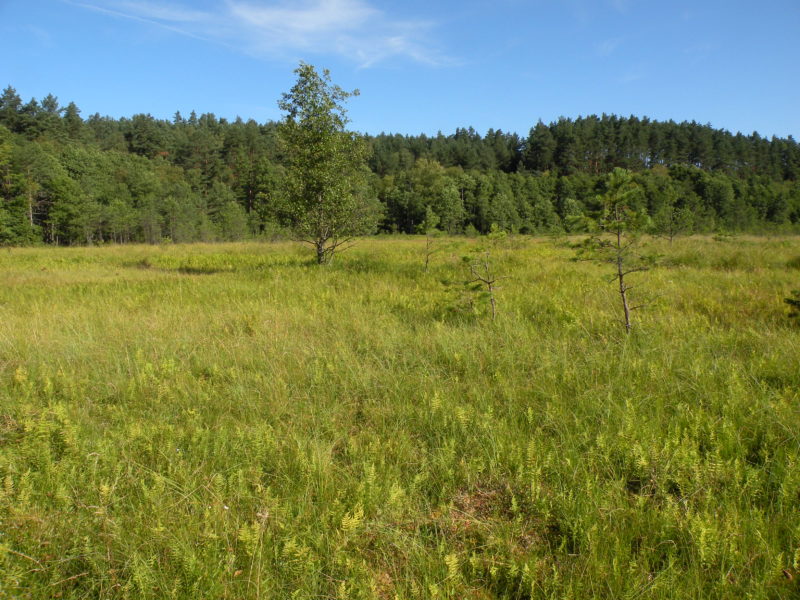The project in northern Poland came to an end

At the end of June 2018, we completed the implementation of a nearly 6-year-old project for the protection of alkaline fens in the young glacial landscape of northern Poland
LIFE11 NAT/PL/423.
We invite you to read the Reports on the implementation of the project: in the version for laymen (Vol I and Vol II) and full scientific version (Vol I and Vol II).
A dozen or so years of observations of alkaline fens in northern Poland indicate different dynamics of vegetation changes. Among tens of alkaline fens, the following can be considered as the best preserved and representative vegetation maintaining its unaltered character (in the absence of protection measures or their occasional use) over the last dozen or so years: Bagno Stawek Reserve, Mechowisko Radość, Mechowisko Manowo, Rospuda Valley, Torfowisko Morgi, Torfowisko Zocie, and Kobyla Biel.
The process of slow changes of vegetation within these fens should be linked to the preservation of natural or only slightly modified hydrological conditions within their surface and underground catchment areas. The different dynamics of changes in the vegetation of alkaline fens apply not only in relation to entire sites but also within fragments of fen complexes. Examples include the fens of the Ilanka and Pliszka River Valleys.
Protective measures consisting in the regulation of groundwater level, removal of forest and rush vegetation, as well as mowing may result in various effects and protective measures, limited only to raising the water level within alkaline fens with altered hydrological conditions, contribute little to inhibiting the expansion of forest vegetation. Raising the water level in sites where the top layer of peat is mineralized contributes to the expansion of rush vegetation.
Maintaining or restoring vegetation characteristic for alkaline fens in strongly transformed sites is possible by raising the water level combined with simultaneous intensive removal of biomass, but sometimes for unknown reasons the implementation of this measure – even for many years – does not bring the desired effects. Occasional (every 3 – 5 years) removal of tree wildings ensures that the characteristic vegetation of the least transformed alkaline fens is maintained. The use of moss fens with heavy mechanical equipment, such as groomers, has a negative impact on the ecosystem by homogenizing the structure of the fen and affecting its biodiversity. In the case of removal of bushes from alkaline fens, it is necessary to remove the root offshoots for several consecutive years.
Alkaline fens are distinguished by many specific features, depending on the local hydro-ecological conditions, and require highly individualized treatment in the selection of protection methods.
Thanks to the project, we managed to:- to build 127 valves, thanks to which water conditions have improved,
- remove the tree undergrowth from 173 ha and additionally mow the area of 195 ha – the open character of the fen is restored, the light and water conditions improved, and further extensive use of the areas was facilitated,
- protect the habitat in 9 places against the negative influence of the surface overflood caused by the activity of beavers,
- create 8 new nature reserves and for 11 (including those 8 new ones) develop and establish conservation plans that provide adequate protection in the long term
- for other sites, detailed nature documentation has been developed (including the agri-environmental documentation allowing the implementation of the scheme). This documentation is to serve as the basis for planning and carrying out protective activities in these fens,
- purchase almost 62 ha of land, on which the most valuable patches of the habitat are located, including in the Mechowiska Sulęczyńska reserve (we wrote about them in our news) and the Rospuda valley.
This text is also available in: PL













